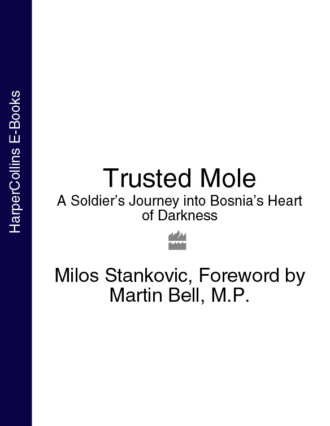Trusted Mole: A Soldier’s Journey into Bosnia’s Heart of Darkness

Полная версия
Trusted Mole: A Soldier’s Journey into Bosnia’s Heart of Darkness
Язык: Английский
Год издания: 2018
Добавлена:
Настройки чтения
Размер шрифта
Высота строк
Поля
Конец ознакомительного фрагмента
Купить и скачать всю книгу

